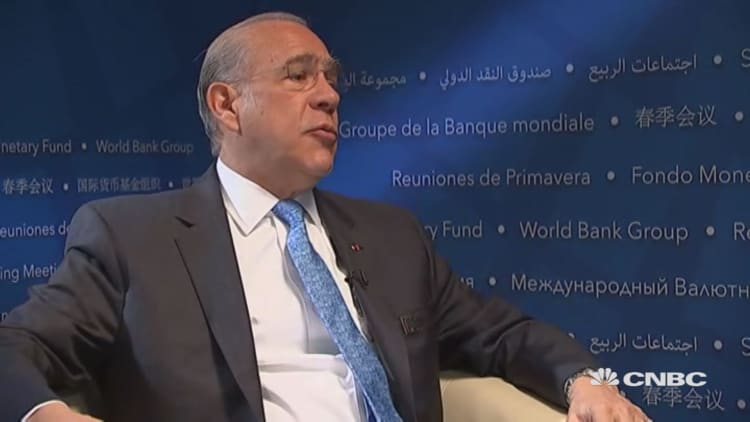


Barely a month following the Panama Papers leak, the group of international journalists who linked some of the world's most powerful people to sheltering wealth abroad have released a sequel.
On Monday, the International Consortium of Investigative Journalists (ICIJ) published details on over 200,000 offshore entities in a searchable database on its website.
The data were part of the initial 11.5 million files from Panamanian law firm Mossack Fonseca that an anonymous leaker sent to German newspaper Süeddeutsche Zeitung over a year ago. At the time, Süeddeutsche Zeitung asked the ICIJ to organize a global reporting collaboration to analyze the files, resulting in the first batch of revelations published in early April.
Free to read, Monday's publication outlines basic information about companies, trusts and foundations set up in 21 jurisdictions, including Hong Kong, Singapore, New Zealand and the U.S. state of Nevada. The ICIJ said it was careful not to disclose any private information, such as bank accounts, email exchanges or financial transactions.
Speaking to CNBC's 'The Rundown' following the publication, ICIJ senior editor Michael Hudson explained the group's intentions.
"We feel it's important to have transparency, this is like a corporate registry. If you are going to operate around the world, people should know who the owners, directors, powers of attorney are, essentially who is behind these companies."
Monday's release, which the ICIJ calls the world's largest release of information about offshore companies and the people behind them, is part of the group's ongoing investigation to shed light on the extent at which individuals are creating secret corporate entities, i.e. shell companies, that critics say facilitate money laundering and tax evasion.
But it's not just shell firms in question; Hudson also shined the spotlight on trusts.
"Trusts are an interesting beast. Unlike a company, you sign away the assets, i.e. you giving away the money to someone else who is supposed to manage it for you and that way, you can say with a straight face that you don't have those assets. It's a way of turning definitions on top of each other and possessing money without officially possessing it."
New Zealand is among the countries already coming under pressure following Monday's revelations.
After combing through the ICIJ data, Radio New Zealand, TVNZ and Kiwi journalist Nicky Hager released a report stating that Mossack Fonseca recommended New Zealand as a good place to do business for its tax-free status and high confidentiality. Rich Latin Americans in particular were using shell companies and trusts to channel funds around the world, the report said.
New Zealand Prime Minister John Key was quick to respond.
"The government takes the issue seriously and we've called for a review of disclosure rules for foreign trusts by tax expert John Shewan...As I've been saying for some time now, if there's any need for change in this area, the government will consider it and if necessary take action," Key said at a Monday media briefing.
New Zealand and Samoa were the only locations in the 21 jurisdictions covered in Monday's data that provided information about shareholders, the ICIJ noted on its website, but discrepancies still remain. Even when shareholders are listed, they could be nominees appointed by the law firm that registered the company, it said.
According to Hudson, it's not just countries such as New Zealand or Panama that need stricter regulation; the entire offshore system is at fault.
"The offshore system is a global worldwide system, and that means New Zealand, Australia, Cook Islands, Costa Rica, Panama and the U.S. are all part of this system in some way or another, they're feeding clients to it and they are attracting clients."
The world's largest economy is actually one of the biggest tax havens in the world, with states such as Delaware, Wyoming, and Nevada boasting more secrecy laws than the British Virgin Islands, one of the most famous offshore havens, Hudson said.
The Delaware Department of State told CNBC it was working closely with Congress and the Obama administration to combat international financial crimes. The other two states did not reply to emailed requests for comment.
The 2015 Financial Secrecy Index, published by the international organization Tax Justice Network, identified all three states as national leaders in "offering egregious secrecy facilities."
Washington is paying attention however. Last Thursday, the Obama administration announced that it sent legislation to Congress to create a centralized registry of the owners behind any new company in an effort to help authorities crack down on money laundering and other crimes.
It is not illegal to set up trusts or shell companies, but the fact that owners who do can remain completely anonymous is the crux of the problem, according to financial experts.
"Good asset protection does not rely upon banking secrecy. Foreign accounts, and foreign trusts and corporations which own foreign accounts, must be disclosed ... reliance on secrecy to protect offshore assets is no longer a viable strategy in today's world," stated Asher Rubinstein, an asset protection attorney at New York-based practice Rubinstein & Rubinstein, in an April note.
So, what change will the Panama Papers bring exactly?
Monday's news essentially builds on the storyline of the first leak, explained Tom Cardamone, managing director at Global Financial Integrity, a non-profit research and advisory firm specializing in illicit financial flows.
"It provides far more info to the public at large; it outsources additional research into the details of what's behind these 200,000 companies. Any researcher, academic or journalist who is interested can go into this database and search for relationships between people and company names," Cardamone said.
He expects Monday's news to unleash significant consequences for the global financial system, noting that much progress has already been made since the first leak. 33 governments have already united to create registries of beneficial owners that will be open to law enforcement and tax authorities, "a sea change compared to what the world looked like six weeks ago," he said.


